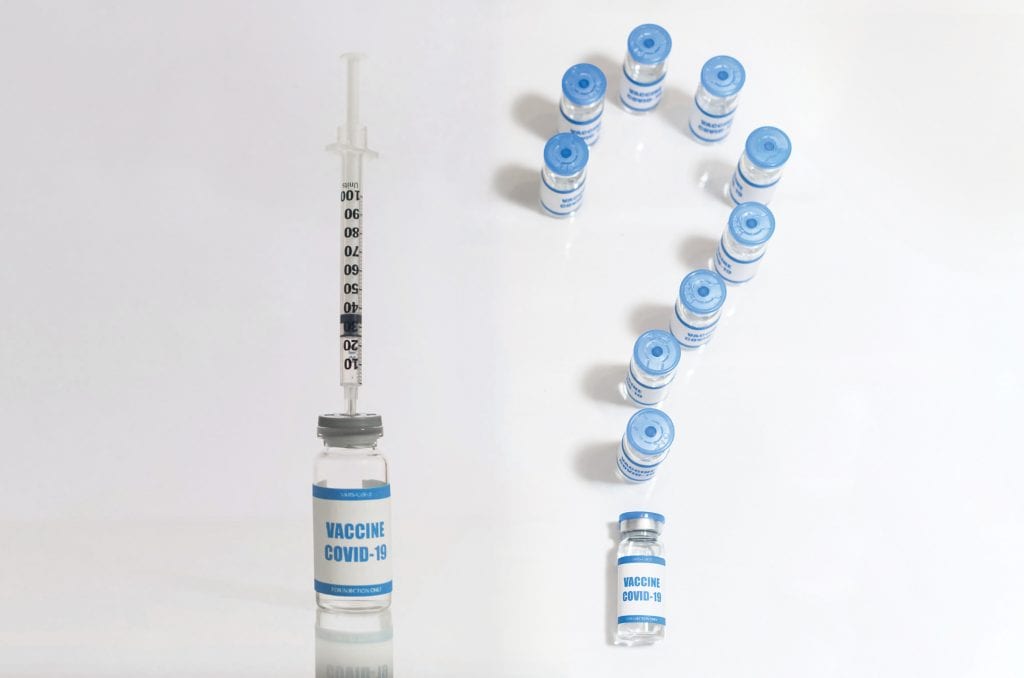COVID-19 vaccines offer hope that we might soon return to some normalcy. With a significant portion of the population fully vaccinated, what’s next? We asked Tim Wiemken, Ph.D., an associate professor of infectious diseases at Saint Louis University, what people can do to keep themselves and others safe.
What does it mean to be fully vaccinated?
In the U.S., we have three vaccines approved: Pfizer, Moderna, and Johnson & Johnson. Pfizer and Moderna require two doses, and after you get the second, it takes your body two weeks to respond and develop protective antibodies. For Johnson & Johnson, it’s two weeks after the single dose. With the
Pfizer and Moderna vaccines, what is the impact of skipping the second dose?
That is still being investigated. You certainly won’t be as well protected after just one shot, but estimates vary as to how much less.
After being vaccinated, how much do you have to worry about exposure?
These vaccines are really good, but no intervention we have is 100% effective. From masks and social distancing to washing your hands and sanitizing high-touch surfaces, nothing is perfect. There are holes, but the more we stack these practices against each other, the fewer holes we have.
How should the vaccinated approach masks?
It’s always going to be safer to wear a mask. It’s the most long-lasting intervention we have. Washing your hands or disinfecting surfaces is a momentary solution. A mask is effective as long as you’re wearing it. We have seen vaccine breakthrough infections in the U.S. In many of these cases, people are asymptomatic or have mild symptoms that could be mistaken for allergies, but they can still spread the virus. It may be frustrating, but it’s better to still wear a mask.
Should you still isolate if you’re exposed to COVID-19?
According to the Centers for Disease Control and Prevention, you do not have to quarantine, but from a personal health perspective, it’s always a good idea to take precautions. Monitor yourself for symptoms, and avoid large gatherings.
Can you travel safely?
It’s certainly safer to travel if you are fully vaccinated. You no longer need to get tested or quarantine before or after traveling in the U.S. For international travel, there are different guidelines. Parents also may want to consider what they feel comfortable doing if they have children who are not vaccinated. When it comes to flying, hanging out at the airport is a bigger risk than the actual flight. Airplanes have more advanced protections and are regularly disinfected.
Will in-person summer camps be a safe option for kids under 12 who cannot yet be vaccinated?
Camps can run the range from very safe to very unsafe. It all depends on the interventions that are being implemented. Across the majority of schools this year, we have seen that hand hygiene, masks and keeping kids in pods does work. It’s also safer outside where the air flow is better. If you’re practicing the appropriate interventions, you’ll be in pretty good shape even if you aren’t vaccinated.
What precautions should you take when gathering after getting vaccinated?
You can have a group gathering, but you still may want to limit the size if you’re not going to practice social distancing, wear masks or meet outdoors. The more people you have, the more likely it is that someone may not be fully protected. Four people is very different from 4,000 even if everyone is fully vaccinated.
